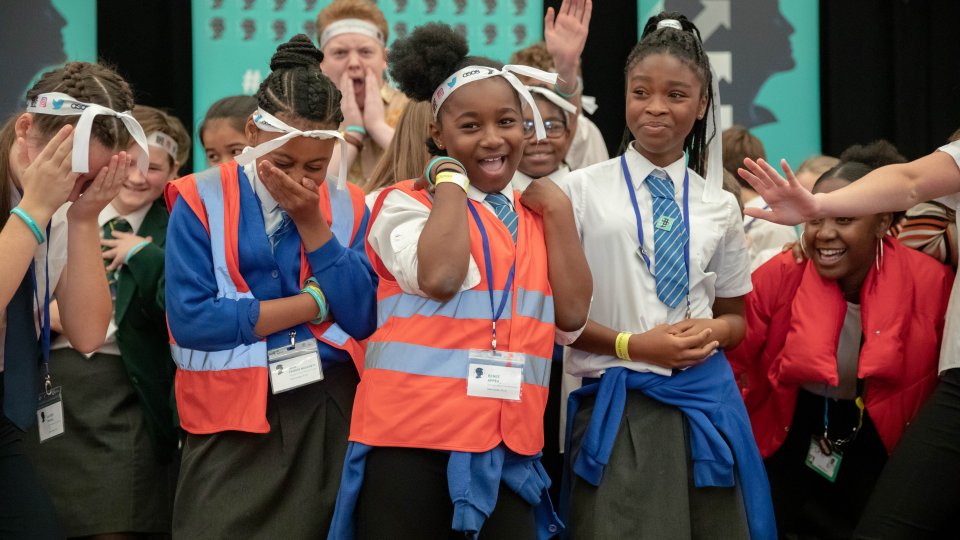Young people are the best agents for change in their schools, communities and online. Schools are increasingly recognising the impact their students can have by empowering them through peer support. These initiatives, which can take many forms including mentoring, school council schemes and ambassador programmes, harness the power that young people have to drive change around the issues that matter to them.
Peer support schemes have been shown to have a number of benefits:
- Students who are peer supporters gain important skills including increased self-confidence, a sense of responsibility, active listening, empathy and communication skills.
- Peer supporters often have more in common with students who need help than adults. Students who have been bullied for instance often find it helpful to talk to a peer.
- Students are often more likely to listen to someone their own age than an adult. Peer support schemes can therefore influence behaviour to create a positive change.
Young people can make a particular impact when it comes to online issues such as cyberbullying or online hate speech. By harnessing students’ knowledge of the issues young people encounter online, peer mentors can model positive online behaviour, equip their peers with knowledge about online trends and issues, and raise awareness of coping mechanisms.
But what makes a peer support scheme work? How can staff members set them up and keep them running successfully? The Diana Award (partner in the SELMA project) has trained over 32,000 young people across the UK through its peer-led Anti-Bullying Ambassador Programme. Having gained the skills, confidence, knowledge and resources to tackle all forms of bullying, these young people have gone on to make a significant impact. With these great examples of best practice in peer support in mind, here are The Diana Award’s top tips for staff members wishing to set up a scheme in school:
- Recruit a diverse team. It’s important that the team you choose is representative of the wider school community, so try to choose young people from different age groups, friendship groups and different experiences of the issue you are trying to address through the scheme.
- Set up an application process. To ensure you recruit students who will be most engaged with the scheme, ask applicants to outline how they will contribute to the team and why they are passionate about getting involved.
- Be clear on your goals. What is your team seeking to achieve? Do they wish to build a positive school culture? Are they going to provide students with someone to talk to if they experience online issues? Would they like to create a whole-school campaign to raise awareness? Peer support can take many forms, so set out a plan of action with your team.
- Get buy-in. Secure backing from the senior leadership team by presenting the programme and how your young people can make a difference in your setting.
- Whole-school approach. Peer support schemes can only be so effective when operating in isolation. Think about how you can embed a whole-school approach where everyone in your setting - be they teachers, students, school staff, parents or governors – is aware of what your team is trying to achieve and how they can support.
- Find a suitable room where your group of peer mentors can meet on a regular basis. The frequency of your meetings is up to you, but a weekly meeting is recommended - particularly in the start-up phase - to maintain momentum amongst the group.
- Group agreement. At the start of the scheme, co-create a group agreement establishing ground rules for how the group would like to work with each other over the year. Ideas might include being open and honest, respecting each other, teamwork, etc.
- Youth voice. In setting up a peer-led scheme, including young people in the development of a training plan for your peer mentors is very important. Consult with your students and ensure you continuously evaluate any training or activities to identify ways to improve.
- Dealing with disclosures. In any session that involves social and emotional aspects, it is to be expected that young people will be open and honest in their discussions. This can lead to information being shared that may give you cause for concern over a child’s safety or well-being. It is important to follow your school’s safeguarding procedures in these cases and intervene in a way that protects the child. Ensure that your peer support team is aware of this.
- Develop a SELMA training plan. Peer supporters have a vital role to play in educating their peers about online hate speech. The SELMA Toolkit contains peer-led activities to address issues surrounding the hate speech topic. For more information and support, check our “How to?” guide for setting up a peer mentoring scheme which outlines our suggested pathways through the Toolkit for establishing SELMA Peer Mentors within your school.
For more information about The Diana Award visit https://diana-award.org.uk/.






